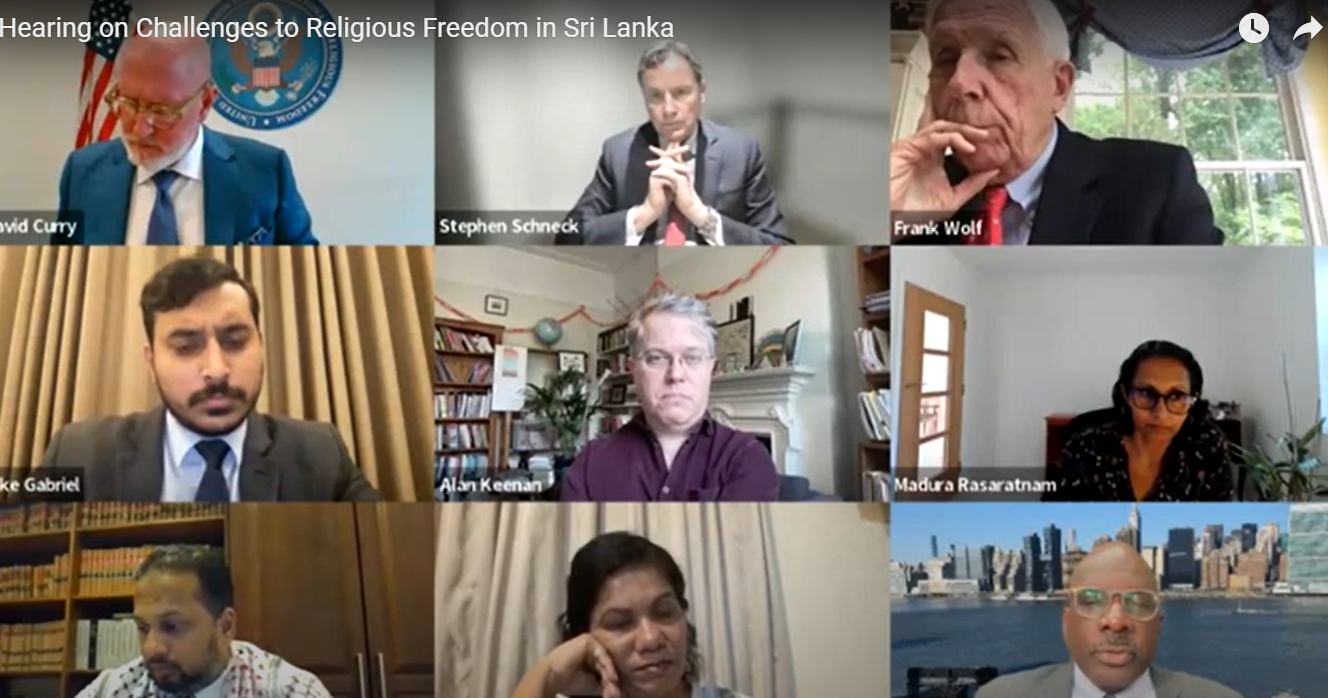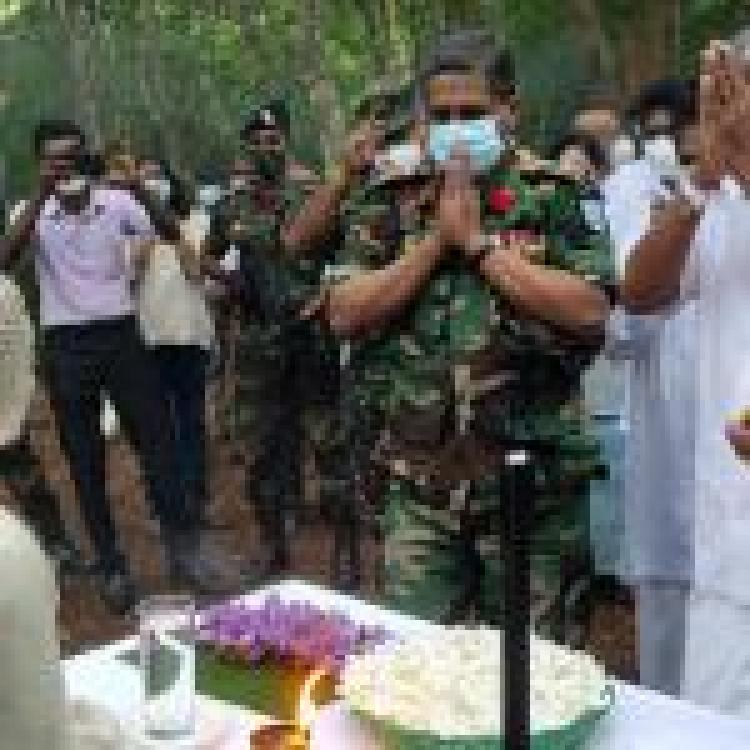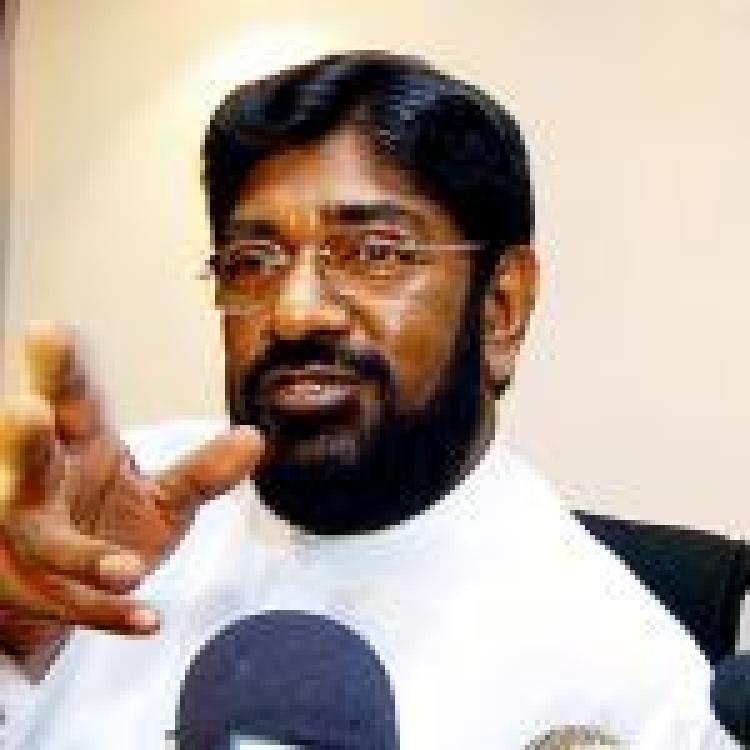
In a virtual hearing held by the US Commission on International Religious Freedom (USCIRF) panelists highlighted the shrinking space for religious freedom on the island.
“In 2023 and most recently, in our 2024 annual report released last week, USCIRF recommended that the U.S. Department of State place Sri Lanka on its Special Watch List for engaging in or tolerating severe religious freedom violations,” said Frederick Davie, USCIRF Vice Chair. “In the years following the civil war's conclusion, discrimination against religious minorities–particularly Tamil Christians, Tamil Hindus, and Muslims–have exacerbated religious tensions.”
“Religious freedom conditions in Sri Lanka are on a worrying trajectory,” the commission noted. “Discrimination and periodic violence against religious minorities–particularly the Tamil Christians, Tamil Hindus, and Muslims–have exacerbated religious tensions. While recent efforts to expropriate places of worship, such as temples and mosques in the North and East, have echoed and intensified tensions.”
The commission noted that the Sri Lankan government has implemented and enforced several policies that have disproportionately targeted religious minorities, including the Prevention of Terrorism Act (PTA), the International Covenant on Civil and Political Rights (ICCPR) Act, and the Online Safety Bill.
Speaking at the event, Hejaaz Hizbullah, a human rights lawyer and a former Prevention of Terrorism Act (PTA) detainee, said that in the case of the Kurunthumalai Temple, the issue is not a conflict between Hindus and Buddhists, but of Sinhalese and Tamil. “The Sinhalese claims to the area does not appear to be ready to accommodate Tamil Buddhists but insists on a Sinhala Buddhist right.” he said. "I am saying this to highlight the underlying fault lines so as to help understand the issues."
Madura Rasaratnam, Executive Director of the People for Equality and Relief in Lanka (PEARL) told the commission that in the Tamil-speaking areas of the North-East, state-sponsored, and militarised efforts at ‘Sinhalization’ and ‘Buddhisization’ has intensified since the end of the war.
“The ultimate object is to forcibly supplant the Tamil place of worship with a Sinhala one and subsequently to transform a Tamil-speaking area into a Sinhala one. It is important to note that violent state-sponsored efforts at Sinhala colonization in the North-East have been ongoing since the 1930s and were one of the causes of the civil war. These efforts have developed and intensified since the end of the war.”
Rasaratnam emphasized the many areas in the North-East exemplify instances of state-sponsored Sinhalization efforts. She added that the Sri Lankan archaeology department has intentionally blocked Tamils from accessing sites that are sacredly Hindu while Buddhist monks have blocked Tamils from cultivating adjoining paddy fields. She referred to several other places in the North-East such as Thayiddi in Jaffna, Mayilathamadu in Batticaloa, Neeraviyadi in Mullaitivu and Paralai Murugan Temple in Jaffna where similar tactics are still in use.
Mike Gabriel the Head of Religious Liberty Commission, National Christian Evangelical Alliance of Sri Lanka (NCEASL) told the commission of how it has been five years since the terror attacks on Easter Sunday, and yet no one has been held accountable.
He added that the commission that the Ministry of Buddhasasana and Religious Affairs recently deemed that all new churches must register with the ministry, a bureaucratic hurdle that prevents the Christian community from securing legal recognition of new churches. “In March 2024, the Minister of Buddhasasana, Religious Affairs announced steps will be taken to raid unregistered religious centers involved in religious conversions," he said. "This has been a worrying development.”
Meanwhile, Shreen Abdul Saroor, Co-Founder of the Women’s Action Network focused on how Muslims have become targets of the draconian Prevention of Terrorism Act (PTA), with many still to secure the release of family members detained under this law. “Out of nearly 2000 Muslims who have been arrested after the Easter attack about 300 men, women, and children were held in detention, under the PTA, for a long period. It was the women who were at the forefront to get them released and are continuing to struggle for the release of remaining 25 men in prolonged detention.”
Alan Keenan, Senior Consultant at the International Crisis Group (ICG) spoke of the process of claiming land in the North-East as ‘belonging’ to Sinhala Buddhists, even when it involves destroying or displaying long-standing sites of Hindu worship. He said it is “allowed to continue in part because of the lack of clear or consistent reaction from the president, and the many central government officials who take their lead from him. This reticence to intervene strongly is likely due to the president’s perceived short-term political need to maintain the support of the Buddhist clergy and military as well as his and others’ awareness of the power of the ideological deep structures of Sinhala Buddhist.”
See more here.


